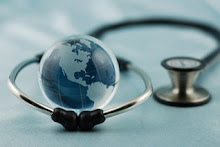Truthfully no.
Medicine is a scientific art practiced by human beings. These three components fail. Even machines and computers running perfectly and incessantly fail at times.
Perhaps the better questions are:
1) Was the mistake or complications foreseeable and preventable?
2) Did the provider(s) make the best of the situation to correct the complication for the patient?
3) Do the people and the organization learn from the error and work to prevent it from happening again?
These are essential process components to any quality system. JCI mandates their existence at a surveyed institution.
Recently, I interviewed a patient who underwent abdominal surgery. She felt quite abandoned by her country and insurance company. The insurer contradicted itself in her mind. It would not perform the corrective surgery until she lost weight. They would not perform weight loss surgery until she corrected her first condition.
At this facility she had her weight loss surgery. One of her pre-existing hernias became stuck unrelated to her weight loss surgery. She was rushed back in the OR and had the hernias corrected. All performed quickly and with as much safety as could be achieved. The problem was rapidly identified and corrected. A turn she had not expected, but it was managed masterfully by this institution and its personnel.
To say that she was simply glowing is an understatement. There was not enough time to hear how happy she was that someone, this facility, took the time to give her the needed services that would allow her to get back to a healthy life. It took a complication in a foreign country to give her the keys for her life. The hernias were no longer there to cause her pain and discomfort. It was an inspiring story to hear her tell the events. She clearly felt and had the impression that this facility and its staff were on her side and acting to improve her health. It was clear in her mind which party had served her poorly.
So complications can have good outcomes. Not all, but some do end up with favorable events.
Travel Safe, Be Well
Jim McCormick MD
Premiere Medical Travel Company
www.premieremedicaltravel.net
Subscribe to:
Post Comments (Atom)


No comments:
Post a Comment